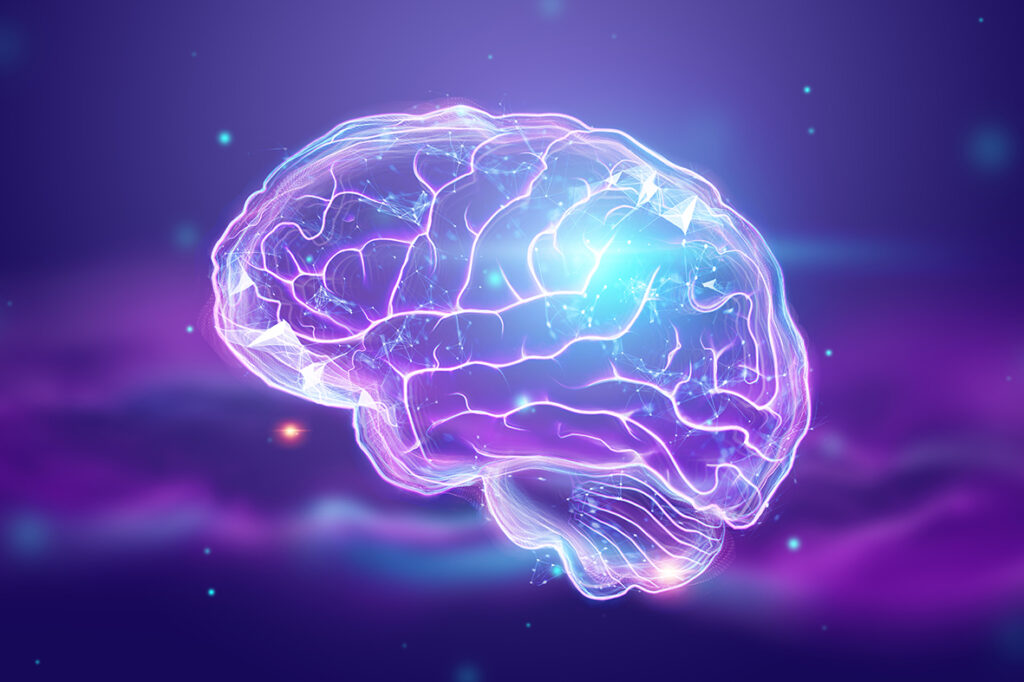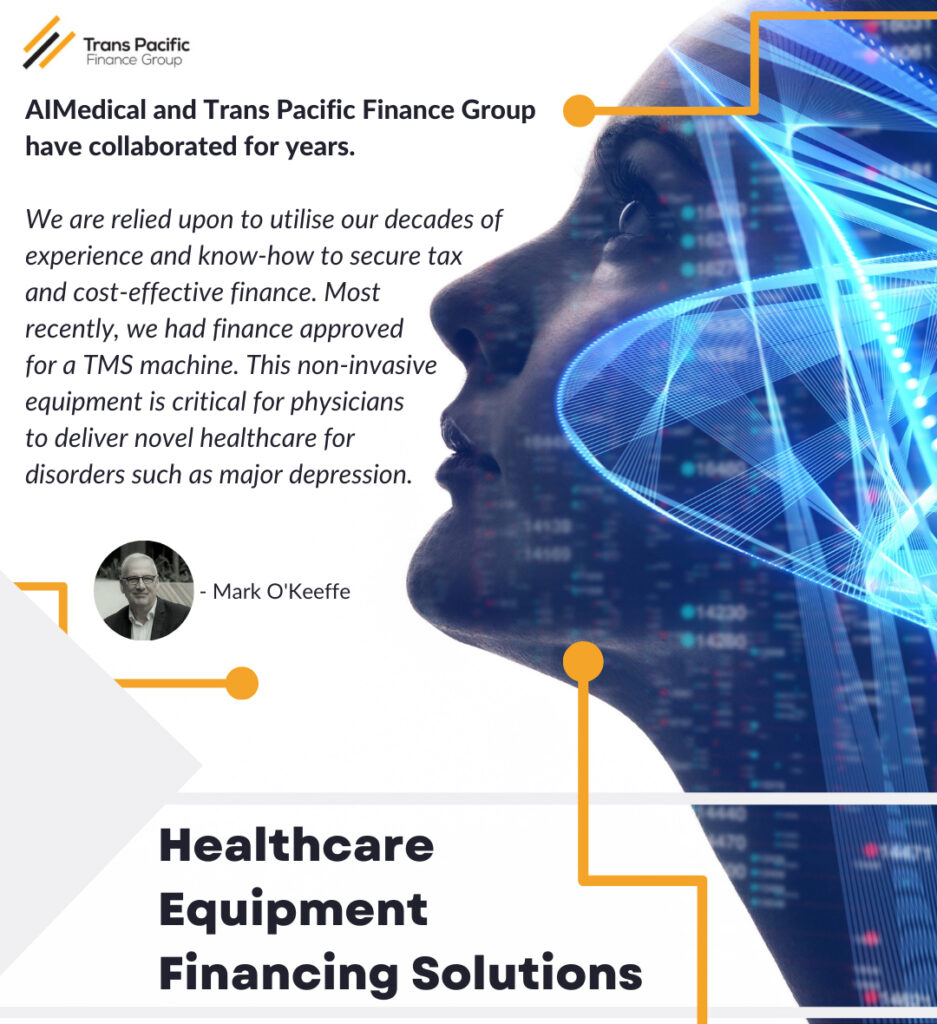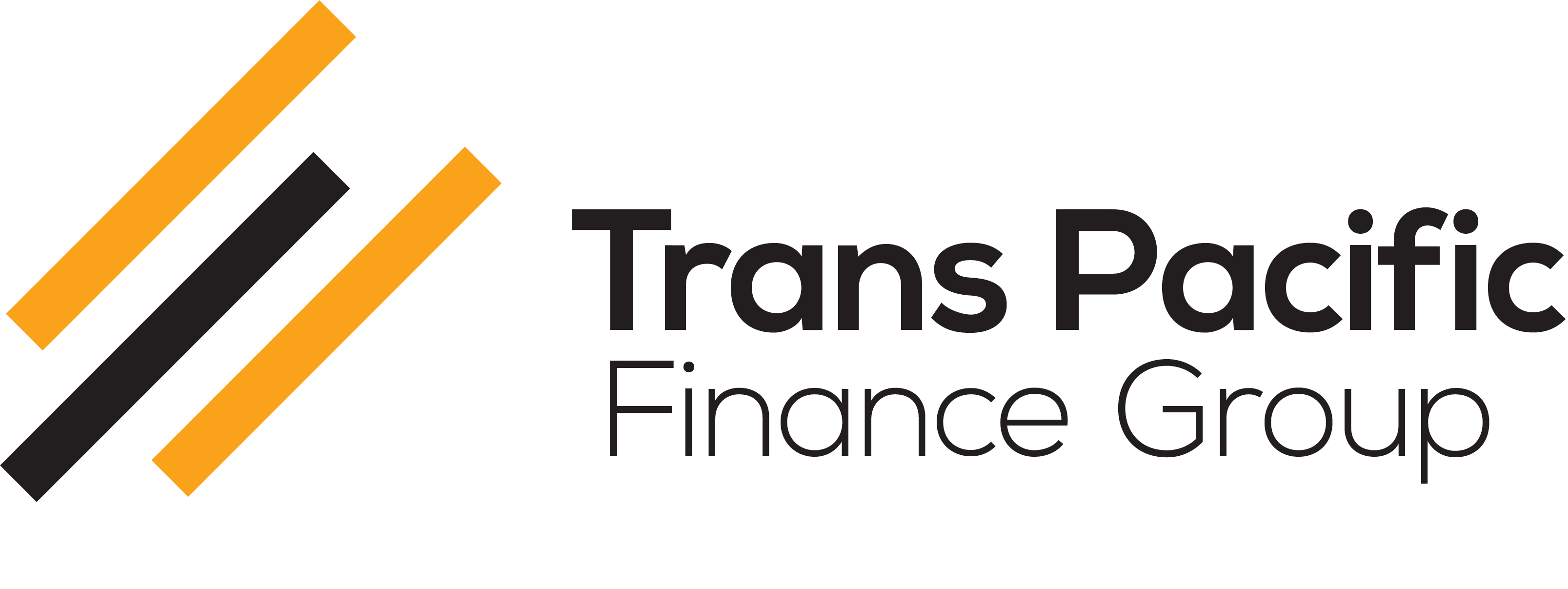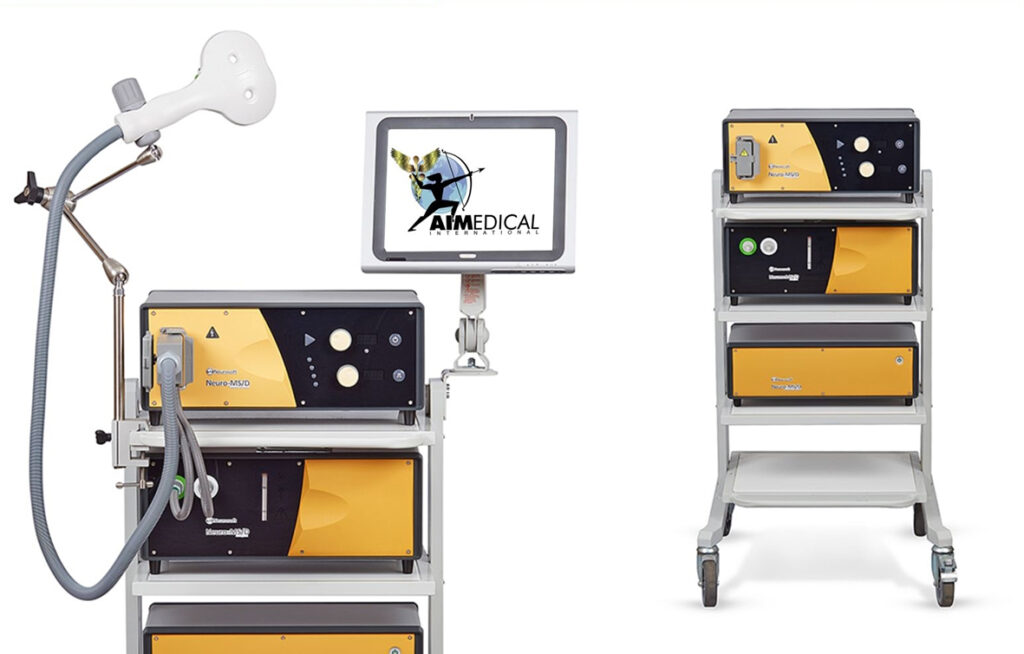Tax & Cost-Effective Healthcare Finance Solutions for the Medical Industry
A non-invasive procedure offers a solution where traditional methods have failed to treat major depression.
Robots that help people walk again.
Accurate neurosurgical planning.
We have helped small businesses and medical companies secure this kind of equipment for their clients. Innovative healthcare and rehabilitation equipment can be expensive and difficult to finance. In many cases, commercial medical equipment pays for itself over time. However, the initial purchase often depends on what financing solutions are available. Australian physicians have relied on us for years to secure finance for equipment and devices that better the lives of their clients.
Ground-Breaking Neuroscience: Transcranial Magnetic Stimulation Therapy (TMS)
The TMS machine is a ground-breaking advancement in neuroscience. It works by stimulating nerve cells using powerful magnetic fields(*1). It does not require any invasive surgery or procedures and is well-tolerated by patients(*2).
For over three decades, this technology has given clinicians a non-invasive way to(*1):
• Accurately map and target specific brain regions (neuronavigation). It avoids inaccuracies of traditional MRI(*3).
• Treat psychiatric conditions such as depression, dysthymic disorder, and obsessive-compulsive disorder(*4).
• Rehabilitate stroke patients.
• Manage neuropathic pain.
• Plan neurosurgery.
• Diagnose diseases or damage to the spinal, cerebral, and peripheral pathways.
Major Depressive Disorder

Australasia holds one of the highest rates of major depression globally (*5).
With access to TMS machines, patients who have not benefited from traditional treatment methods are finding success, with many in remission(*6,7). This therapy has been in development since the 1980s and has been widely researched(*8). Unlike medications, the most common side effect of TMS is mild scalp discomfort from wearing the coil during treatment(*6).
TMS is funded under the Medicare Benefits Schedule. It is now available for treating major depression in patients who have not had success with traditional treatment methods(*2).
AIMedical International: Leading Provider of Advanced Technology in Healthcare

AIMedical International is a leading provider of specialised medical and healthcare equipment in Australia and New Zealand(*2). We have collaborated with their team for several years and helped them secure finance to purchase equipment including the TMS machine.
Specialised Healthcare Equipment Financing Solutions That Ultimately Benefit Patients
Tax and Cost-Effective Financing for the Medical & Healthcare Industries
We have worked with medical and healthcare companies in Australia for a number of years. Thinking outside the box is often the key to finding the most tax and cost-effective financing solutions. Albeit if many devices (remarkably non-invasive) are worth their weight in gold, they still need to be paid for.
Our team take pride in making the impossible possible. More than that, we are proud to see innovative healthcare solutions offered to patients. Using the latest in scientific technology, our clients have helped countless patients recover and rehabilitate.
Low Rates – Fast Approvals – Tailored Finance – Low or No Deposit Loans – Professional Service
You are welcome to contact us for an obligation-free chat. Enquire now online or by phone at (02) 9042 0777.
References *1. Brain Science Tools BV. Diagnostic TMS and EMG. N.d. *2. AIMedical International. Transcranial Magnetic Stimulation. 2022. *3. Brain Science Tools. Added Value of MRI-Guided Neuronavigation. N.d. *4. Brain Science Tools. Navigated rTMS in Psychiatry. N.d. *5. Institute for Health Metrics and Evaluation. New Global Burden Of Disease Analyses Show Depression And Anxiety Among The Top Causes Of Health Loss Worldwide. 2021. *6. O’Reardon, JP, Solvason, HB, Janicak, PG, Sampson, S, Isenberg, KE, Nahas, Z, McDonald, WM, Avery, D, Fitzgerald, PB, Loo, C, Demitrack, MA, George, MS & Sackeim, HA. Efficacy and Safety of Transcranial Magnetic Stimulation in the Acute Treatment of Major Depression.. Biological Psychiatry. Vol. 62. No. 11. 1208-1216pp. 2007. *7. Neggers, SFW, Petrov, PI, Mandija, S, Sommer, IEC & Van Den Berg, NAT. Bestmann, S (ed). Chapter 10 - Understanding the Biophysical Effects of Transcranial Magnetic Stimulation on Brain Tissue. Progress in Brain Research. Elsevier. Vol. 222. 229-259pp. 2015.*8. Barker, AT & Jalinous, R. Non-Invasive Magnetic Stimulation Of Human Motor Cortex. The Lancet. 1106-7 pp. 1985.


"*" indicates required fields